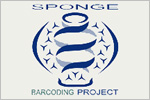Hydrothermal microbial ecology
Hydrothermal habitats offer a window into deep earth processes and provide a unique habitat for life that is adapted to grow at high temperatures and under unique geochemical conditions for example extreme acidic or alkaline conditions. We are interested in questions such as what are the limits to life in such "extreme" habitats and what does this teach us about the emergence of life and the possibility for life on other habitable worlds. Research is derived from field observations involving genomic, gene expression, and stable isotope labeling experiments to better understand how metabolism and carbon fixation mechanisms operate in hydrothermal settings across steep chemical gradients and temperature gradients. We also perform experiments in the lab whereby we create hydrothermal chimneys across eH and pH gradients under a controlled anoxic atmosphere to study how the mineral diversity and chemical transformations (for example of gases) are linked to biological activity and the potential implications for prebiotic chemistry in simulated Hadean hydrothermal systems.
Key publications
- Coskun OK, Vuillemin A, Schubotz F, Klein F, Sichel SE, Eisenreich W, Orsi W* (2021) Quantifying the effects of hydrogen on carbon assimilation in a seafloor microbial community associated with ultramafic rocks. The ISME Journal (doi.org/10.1038/s41396-021-0106)
- Puzenat V, Escartin J, Martel JE, Barreyre T, Le Moine S, Paraskevi N, Gracias N, Allemand P, Antoniou V, Coskun O, Garcia R, Grandjean P, Jørgensen SL, Magi L, Mandalakis M, Orsi W, Polymenakou P, Schouw A, Vallicrosa G, Vlasopoulos O. (2021) Shallow-water hydrothermalism at Milos (Greece): Nature, distribution, heat fluxes and impact on ecosystems. Marine Geology 438; 106521.
- Klein F, Humphris SE, Guo W, Schubotz F, Schwarzenbach EM, Orsi WD (2015) Fluid mixing and the deep biosphere of a fossil Lost City-type hydrothermal system at the Iberia Margin. PNAS 112, 12036-12041.
Cooperations
CRC235 "Emergence of Life"
https://www.emergence-of-life.de/





